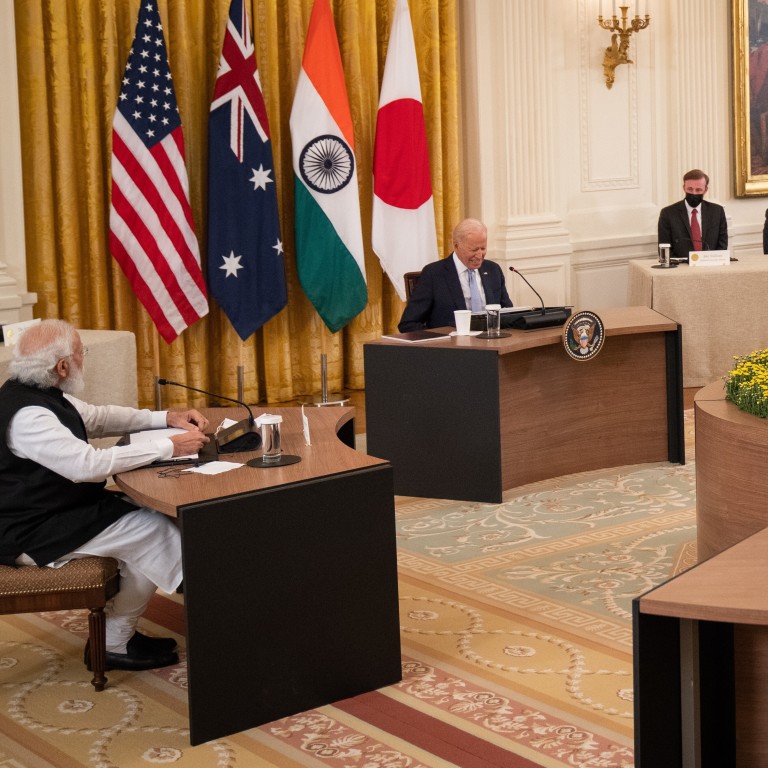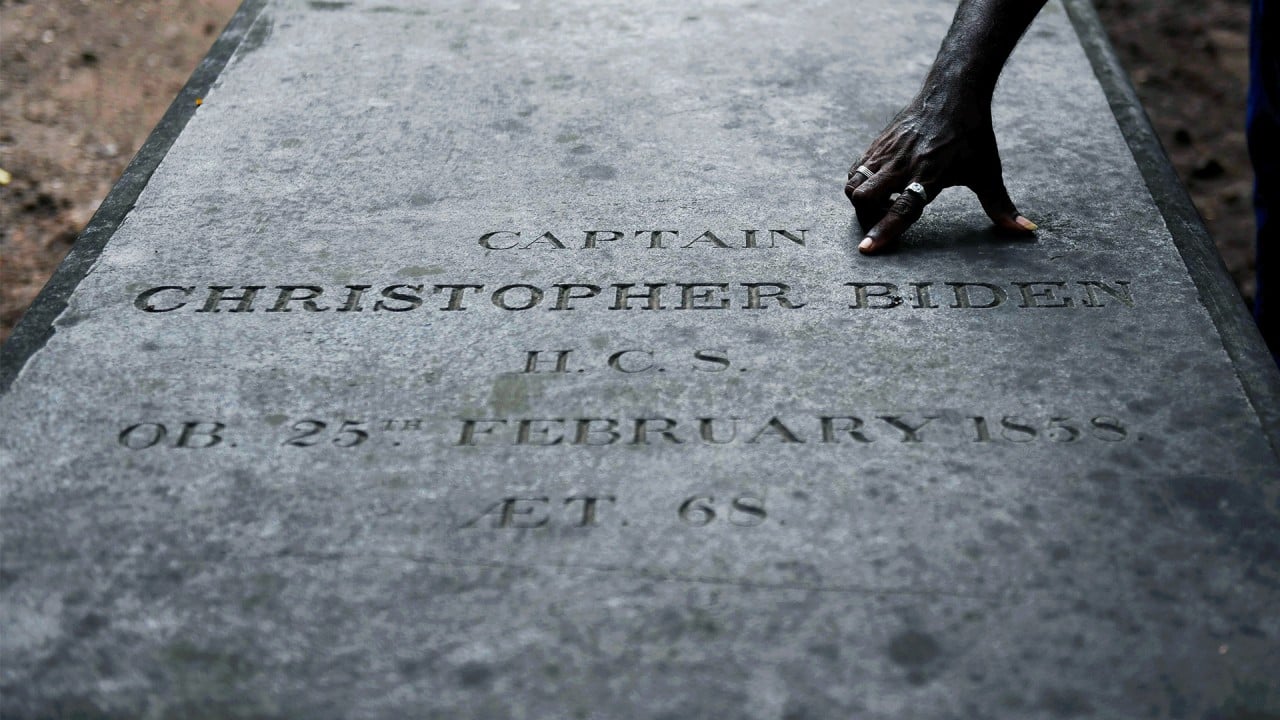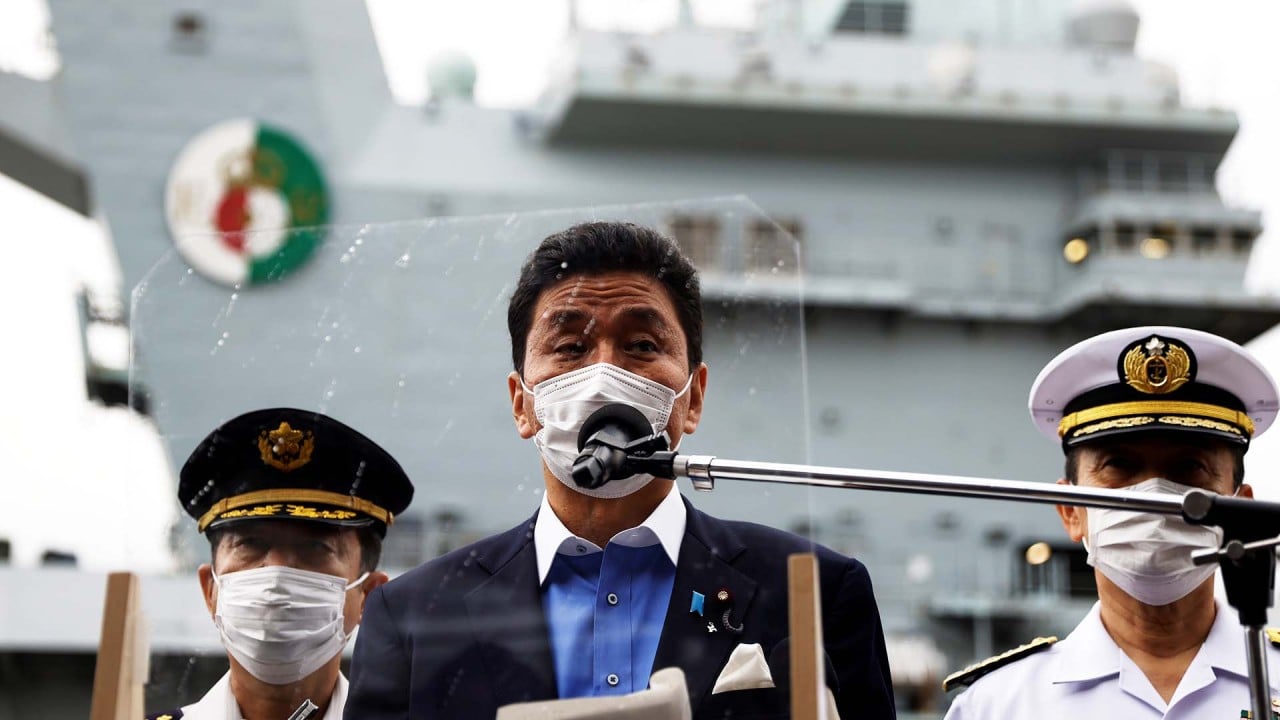
Quad leaders in Washington pledge cooperation on coronavirus vaccines, tech, climate change
- Biden, Modi, Suga and Morrison pledge to make cyberspace and emerging technologies ‘trusted and secure’
- Student exchange programme also made a priority during first in-person meeting of the alliance
Among the initiatives unveiled was what Biden described as a new “Quad fellowship”, designed to bring to the US students from the three other Quad countries to pursue advanced degrees in STEM programs. “It represents an investment in the leaders, innovators, and pioneers of tomorrow,” he said.

02:08
US President-elect Joe Biden’s possible Indian relatives spark genealogical frenzy
It was the first in-person meeting of leaders of the Quad countries, about half a year since the heads of state met virtually.
“When we met six months ago, we made concrete commitments to advance our shared and positive agenda for a free and open Indo-Pacific,” Biden said. “Today, I’m proud to say that we’re making excellent progress.”
Among the tasks for the Quad countries, said Morrison, was to make cyberspace and emerging technologies “trusted and secure,” address supply chain issues, and develop low-emission technologies to take the world to a net-zero economy.
In a veiled dig at China, Morrison said the four countries also hoped for an Indo-Pacific region “free from coercion, where the sovereign rights of all nations are respected and where disputes are settled peacefully in accordance with international law.”
Speaking through a translator, Suga said the four democracies shared “fundamental values” and would work together to realise in the Indo-Pacific a “free and open international order based on the rule of law.”
Kamala Harris gently presses Indian PM Modi on human rights
None of the four leaders’ opening remarks made explicit mention of China, while US officials have argued publicly that the alliance is not aimed at any one particular country.
“It’s not a security meeting or a security apparatus,” White House spokeswoman Jen Psaki said of the Quad, which is formally known as the Quadrilateral Security Dialogue.
But while the administration pushed back against questions about China’s place on the Quad agenda, the country was expected to have featured prominently in the discussions, with each member currently mired in its own bilateral tensions with Beijing on a number of fronts.

Japan is growing increasingly vocal about China’s military actions and territorial claims in the East and South China seas; Sino-Indian ties remain fraught over military skirmishes along their border; and Australia, already in the midst of a trading spat with China, recently angered Beijing with its decision to build nuclear submarines using US technology.
Japan, Australia, India and others had all been the targets of attempted “economic coercion” from China in recent years, the co-chairs of the Japan, Australia and India congressional caucuses said on Friday.
US reaches deal with Huawei’s Meng Wanzhou, allowing her to return to China
“The Quad is ideally positioned to build a blueprint for collective resilience against this type of aggression and assist others facing similar challenges,” they said.
The Quad’s China subtext has not been lost on Beijing, which has called the alliance an “exclusive clique”.
The four countries should “discard the outdated zero-sum mentality and narrow-minded geopolitical perception, view China’s development correctly and respect people’s aspiration in the region and do more that is conducive to solidarity and cooperation of regional countries”, said foreign ministry spokesman Zhao Lijian said earlier this month.

02:26
British aircraft carrier HMS Queen Elizabeth visits Japan amid China worry
Hinting that China would also weigh on a separate bilateral meeting between Suga and Biden later on Friday, a senior US official said that the Japanese prime minister hoped to raise “recent efforts by countries to potentially join CPTPP,” referring to the regional trade pact.
That comes after China and Taiwan both recently announced their candidacy to join the agreement.
The day’s diplomatic meetings got off to a lighthearted start during a bilateral between Biden and Modi, as the two joked about the US leader’s purported relation to an Indian branch of the Biden family.
Biden told gathered reporters of a “Captain George Biden” who served in the East India Company – once the face of British imperialism in India – and who married an Indian woman.
“And I’ve never been able to track it down,” Biden said, joking: “So the whole purpose of this meeting is for [Modi] to help me figure out who he was.”
Modi said he had sought records to help Biden in his genealogical digging, and brought them along to Friday’s meeting. “Maybe those documents could be of use to you,” he told Biden through a translator.
Additional reporting by Reuters

